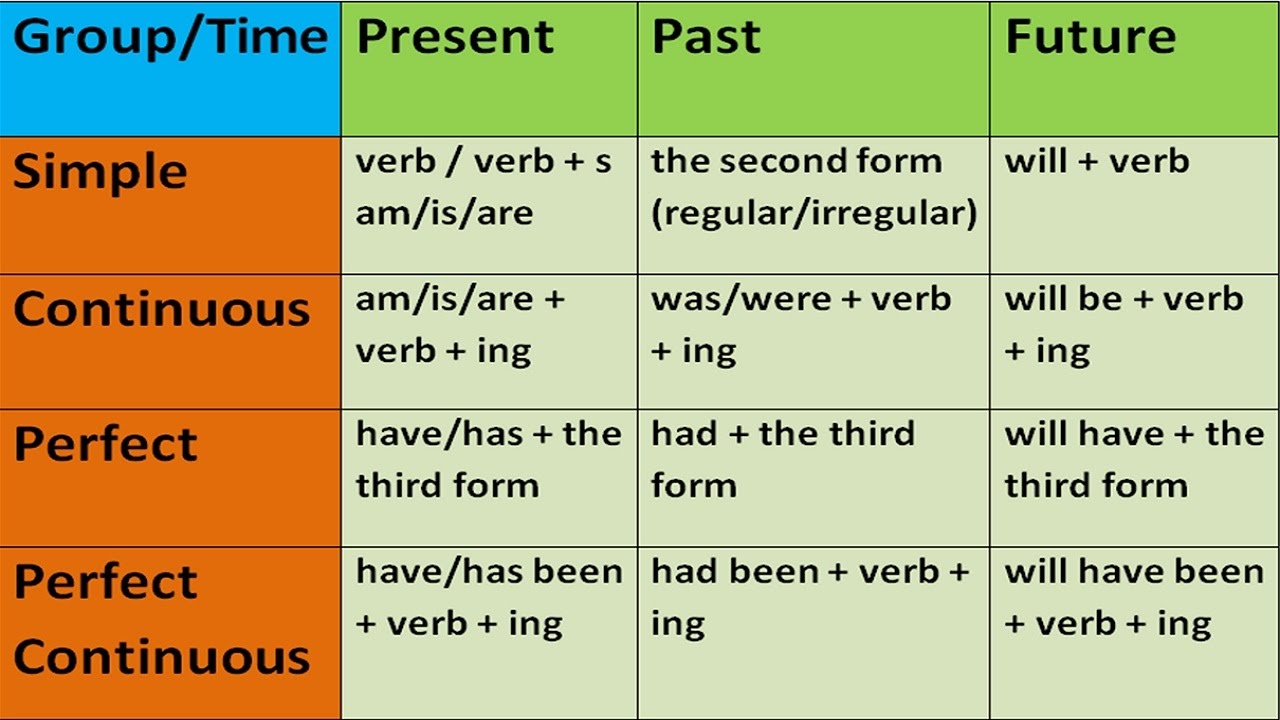
What is a Tense?
A tense is any form of a verb which allows you to show the time during which an or any action has taken place.
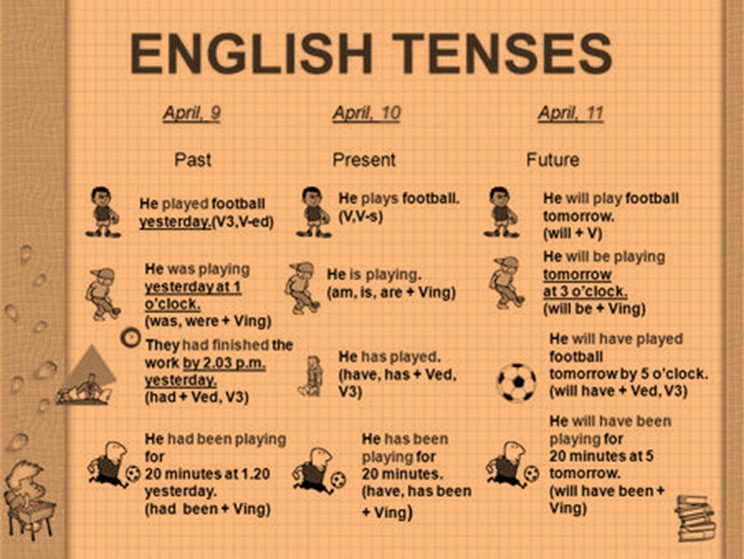
For example, “I am eating.", “I was eating" and “I will be eating"
Tenses are primarily of three kinds:

For example, I was late for school yesterday.
I already ate the chocolate.
I took bath.
I am late for school.
I am eating the chocolate.
I am taking a bath.
I will be late for school.
I will eat the chocolate.
I will take a bath.
Similarly, the above-mentioned tenses can be categorized into 9 different forms, which are as follows :
Present Continuous, Past Continuous, Future Continuous, Present Perfect, Past Perfect, Future Perfect, Present Perfect Continuous, Past Perfect Continuous and Future Perfect Continuous.
These concepts are extremely simple and I will be explaining each of them with enough examples which will clear all your doubts!
So let’s begin with the first set of Continuous Tenses
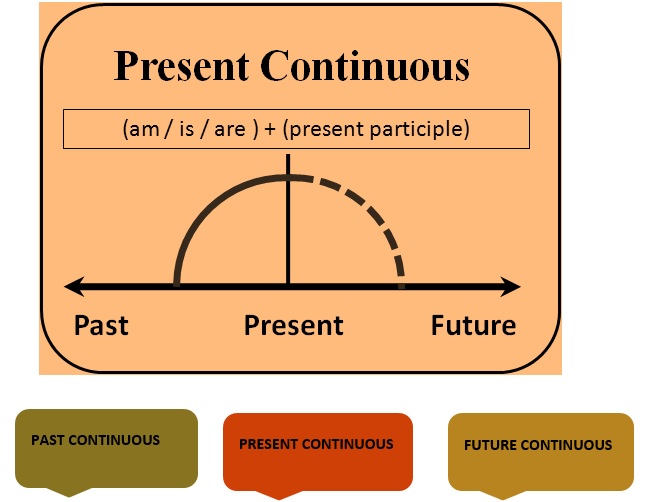
The baby was drinking milk from the bottle.
I was running late for school.
She was beginning to get anxious.
I am playing football today.
The baby is crying.
Sam is reading a book.
He will be feeling good tomorrow.
Maria will be coming here.
I will be writing a report.
Next, we move on to the Perfect tenses.
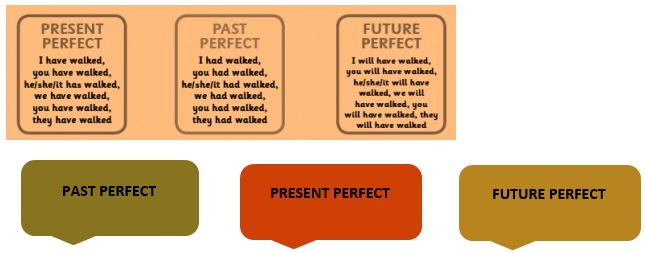
Past Perfect: Past Perfect tense is formed with the past tense form of “to have" combining it with the past participle of a verb.
I had walked five miles by lunchtime.
I had cleaned the stain off the door.
I had saved my document on your computer yesterday.
I have visited the Statue of Liberty.
We have decided to visit the mall.
Shira has worked in the newspapers for two years.
Jack will have finished his homework by the time his mother gets home.
She will have gotten ready by the time they leave the house.
Laura will have cleaned out the apartment before she gives back the key.
Finally, we will discuss the past perfect continuous tenses.
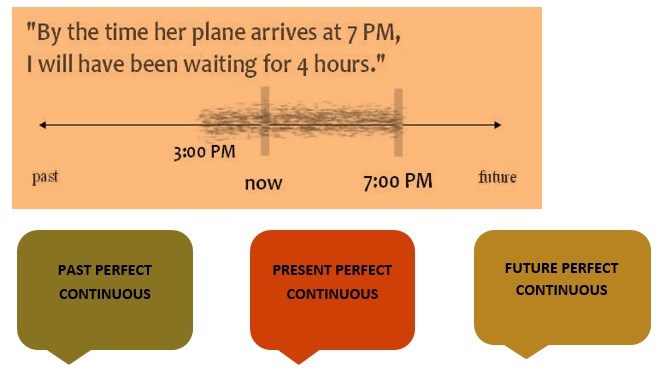
I had been working in the garden all morning.
She had been watching the movie for two hours.
I had been applying for jobs since 22nd August 2010.
She has been listening to music for two hours.
She has been living in Delhi since 2001.
I have been waiting for you for three hours.
They will have been living in Delhi for five years.
The children will have been sleeping since 11 PM.
They will have been writing their homework for two hours.
We hope this article helped you in learning a little more about tenses and don’t forget to Enjoy your path to mom,Relise every moment.
Q.1 |
The following passage contains errors in the use of verbs. Find them and replace them with the appropriate verbs. The mother asked the eldest boy to (1) went to the market and fetch some groceries. The boy (2) was rushing to the market and got everything the mother had asked him to. A few guest were (3) supposing to arrive at their place later in the evening. The mother (4) was assigning tasks to each of the boys. The boys, although lazy, (5) were managing to do everything the mother had asked them to, on time. |
| a) |
Gone |
| b) | Go |
| c) | Reach |
| d) | Arrive |
Q.2 |
The following passage contains errors in the use of verbs. Find them and replace them with the appropriate verbs. The mother asked the eldest boy to (1) went to the market and fetch some groceries. The boy (2) was rushing to the market and got everything the mother had asked him to. A few guest were (3) supposing to arrive at their place later in the evening. The mother (4) was assigning tasks to each of the boys. The boys, although lazy, (5) were managing to do everything the mother had asked them to, on time. |
| a) |
Were rushing |
| b) | Had rushed |
| c) | Rushed |
| d) | Had been rushing |
Q.3 |
The following passage contains errors in the use of verbs. Find them and replace them with the appropriate verbs. The mother asked the eldest boy to (1) went to the market and fetch some groceries. The boy (2) was rushing to the market and got everything the mother had asked him to. A few guests were (3) supposing to arrive at their place later in the evening. The mother (4) was assigning tasks to each of the boys. The boys, although lazy, (5) were managing to do everything the mother had asked them to, on time. |
| a) |
Not supposed |
| b) | Suppose |
| c) | Supposedly |
| d) | Supposed |
Q.4 |
The following passage contains errors in the use of verbs. Find them and replace them with the appropriate verbs. The mother asked the eldest boy to (26) went to the market and fetch some groceries. The boy (27) was rushing to the market and got everything the mother had asked him to. A few guest were (28) supposing to arrive at their place later in the evening. The mother (29) was assigning tasks to each of the boys. The boys, although lazy, (30) were managing to do everything the mother had asked them to, on time. |
| a) | Assigned |
| b) | Had assigned |
| c) | Was assigning |
| d) | Will assign |
Q.5 |
The following passage contains errors in the use of verbs. Find them and replace them with the appropriate verbs. The mother asked the eldest boy to (26) went to the market and fetch some groceries. The boy (27) was rushing to the market and got everything the mother had asked him to. A few guest were (28) supposing to arrive at their place later in the evening. The mother (29) was assigning tasks to each of the boys. The boys, although lazy, (30) were managing to do everything the mother had asked them to, on time. |
| a) | Had managed |
| b) | Managed |
| c) | Are managing |
| d) | Were managing |
Q.6 |
From the given alternatives, choose the most appropriate answer for "change in voice".Eg. We were reciting the poem. ---> The poem was being recited by us. The noise woke up the baby. ---> The baby _______________ by the noise. |
| a) | Had woken up |
| b) | Woke up |
| c) | Awoke |
| d) | Was woken up |
Q.7 |
From the given alternatives, choose the most appropriate answer for "change in voice".Eg. We were reciting the poem. ---> The poem was being recited by us. My grandmother had prepared delicious cakes and tarts this afternoon. ----> Delicious cakes and tarts _____________ this afternoon by my grandmother. |
| a) | Were prepared |
| b) | Have been prepared |
| c) | Had been prepared |
| d) | Were being prepared |
Q.8 |
From the given alternatives, choose the most appropriate answer for "change in voice".Eg. We were reciting the poem. ---> The poem was being recited by us. They were eating salted potato chips. ---> Salted potato chips ________________ by them. |
| a) | Were being eaten |
| b) | Were eaten |
| c) | Had been eaten |
| d) | Were being eating |
Q.9 |
From the given alternatives, choose the most appropriate answer for "change in voice".Eg. We were reciting the poem. ---> The poem was being recited by us. Can the guard take these buckets upstairs? ---> Can these buckets ___________ upstairs by the guard? |
| a) | Take |
| b) | Be taken |
| c) | Are taken |
| d) | Being taken |
Q.10 |
From the given alternatives, choose the most appropriate answer for "change in voice".Eg. We were reciting the poem. ---> The poem was being recited by us. When did you complete your English assignment? ----> When _____________ English assignment completed by you? |
| a) | Had been |
| b) | Is |
| c) | Were |
| d) | Was |
Your Score: 0/10
Yearlong program for Olympiads preparation & to build necessary skills for future.
Explore More
Time to mark your calendar with the upcoming Olympiads exam schedule.
Explore More
Take your Olympiad preparation to next-level by taking LIVE Classes.
Explore More
Assess your performance by taking topic-wise and full length mock tests.
Explore More
Online tuitions for international compeitions like SASMO, SEAMO, etc for Grades 1-11.
Explore More